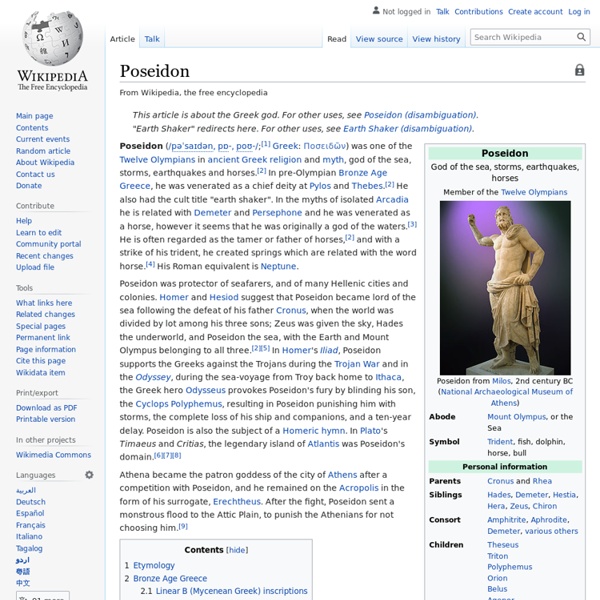Homer, The Iliad, Scroll 15
Scroll 15 But when their flight had taken them past the trench and the set stakes, and many had fallen by the hands of the Danaans, the Trojans made a halt on reaching their chariots, routed and pale with fear. Zeus now woke on the crests of Ida, where he was lying with golden-throned Hera by his side, and starting to his feet he saw the Trojans and Achaeans, the one thrown into confusion, and the others driving them pell-mell before them with King Poseidon in their midst. He saw Hektor lying on the ground with his comrades gathered round him, gasping for breath, wandering in mind and vomiting blood, for it was not the feeblest of the Achaeans who struck him. The sire of gods and men had pity on him, and looked fiercely on Hera.
Calydon
Greek city in ancient Aetolia The Laphrion sanctuary plateau of Calydon with Varasova mountain on the background. Calydon or Kalydon (; Ancient Greek: Καλυδών) was a Greek city in ancient Aetolia, situated on the west bank of the river Evenus, 7.5 Roman miles (approx. 11 km) from the sea.[1] Its name is most famous today for the Calydonian Boar that had to be overcome by heroes of the Olympian age. Mythology[edit]
Jason
We ask you, humbly: don't scroll away. Hi, reader in Canada, it seems you use Wikipedia a lot; that's great! This is the 6th appeal we've shown you. It's awkward, but this Thursday we need your help. We don't have salespeople.
Seduction
Seduction is the process of deliberately enticing a person, to engage in a relationship, to lead astray, as from duty, rectitude, or the like; to corrupt, to persuade or induce into engaging in sexual behaviour. Strategies of seduction include conversation and sexual scripts,[1] paralingual features,[2] non-verbal communication,[3][4] and short-term behavioural strategies.[5] The word seduction stems from Latin and means literally "leading astray."[6] As a result, the term may have a positive or negative connotation. Famous seducers from history or legend include Lilith, Giacomo Casanova, and the fictional character Don Juan. The emergence of the Internet and technology has supported the availability and the existence of a seduction community, which is based on discourse about seduction.
Aetolia
Region of Ancient Greece Aetolia (Greek: Αἰτωλία, romanized: Aἰtōlía) is a mountainous region of Greece on the north coast of the Gulf of Corinth, forming the eastern part of the modern regional unit of Aetolia-Acarnania. Geography[edit] The Achelous River separates Aetolia from Acarnania to the west; on the north it had boundaries with Epirus and Thessaly; on the east with the Ozolian Locrians; and on the south the entrance to the Corinthian Gulf defined the limits of Aetolia.
Byzantine Empire
Roman Empire during Late Antiquity and the Middle Ages The Byzantine Empire, also referred to as the Eastern Roman Empire or Byzantium, was the continuation of the Roman Empire in its eastern provinces during Late Antiquity and the Middle Ages, when its capital city was Constantinople. It survived the fragmentation and fall of the Western Roman Empire in the 5th century and continued to exist for an additional thousand years until it fell to the Ottoman Empire in 1453. During most of its existence, the empire was the most powerful economic, cultural, and military force in Europe.
Homer, The Iliad, Scroll 14
Scroll 14 Nestor was sitting over his wine, but the cry of battle did not escape him, and he said to the son of Asklepios, "What, noble Machaon, is the meaning of all this? The shouts of men fighting by our ships grow stronger and stronger; stay here, therefore, and sit over your wine, while fair Hekamede heats you a bath and washes the clotted blood from off you. I will go at once to the look-out station and see what it is all about."
Laocoön
Trojan priest in Greek and Roman mythology Laocoön (;[1][2][Note 1] Ancient Greek: Λαοκόων, IPA: [laokóɔːn]), the son of Acoetes, is a figure in Greek and Roman mythology and the Epic Cycle.[3] He was a Trojan priest who was attacked, with his two sons, by giant serpents sent by the gods. The story of Laocoön has been the subject of numerous artists, both in ancient and in more contemporary times. Death[edit]
Christopher of Mytilene
Christophoros of Mytilene (Greek: Χριστόφορος Μυτιληναῖος, Christophoros Mytilenaios; ca. 1000 – after 1050) was a Greek-language poet living in the first half of the 11th century. His works include poems on various subjects and four Christian calendars. Biography[edit] Events described in his poems suggest that he started writing in the reign of Romanos III (1028–1034), but most poems can be dated to the reign of Constantine IX (1042–1055), an emperor who favoured culture and literature.



